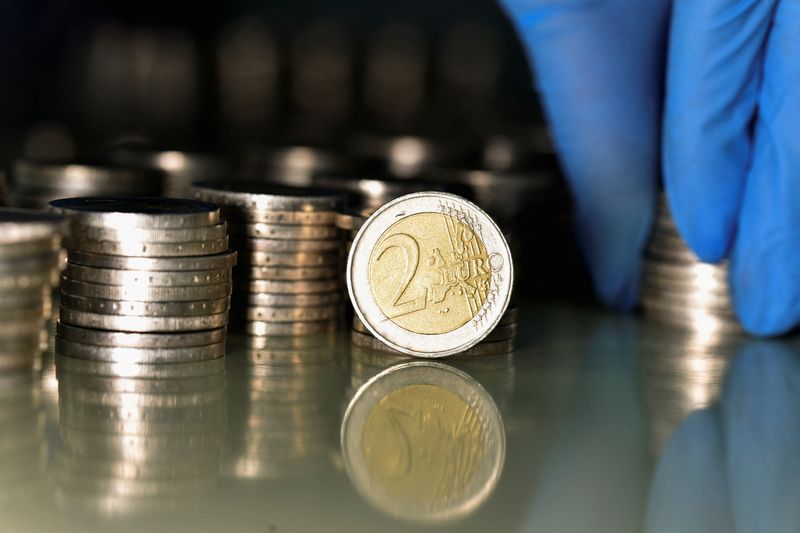By Francesco Canepa
FRANKFURT (Reuters) – The European Central Bank took a further step on Wednesday towards launching a digital version of the euro that would let people in the 20 countries that share the single currency make electronic payments securely and free of charge.
The ECB said it would start a two-year “preparation phase” for the digital euro on November 1, in which it would finalise rules, choose its private-sector partners and do some “testing and experimentation”.
“After two years, the Governing Council will decide whether to move to the next stage of preparations, to pave the way for the possible future issuance and roll-out of a digital euro,” the ECB said.
While Wednesday’s decision is a small step in a multi-year project, it sets the ECB ahead of the other central banks of the Group of Seven (G7) wealthy nations and it may constitute a blueprint for others to follow.
A number of Caribbean countries and Nigeria have already launched digital currencies while China and Sweden are among those that have rolled out pilot projects.
But the Fed, the Bank of England and the Bank of Canada, have all been more cautious on such projects.
The digital euro will be for most intents and purposes like any online wallet or bank account except it will be free to use and guaranteed by the ECB rather than a private company, making it safer.
But the project has its fair share of critics, chiefly bankers and regulators who fear it will take deposits away from the commercial sector, but also some academics, the European Union’s privacy watchdog and some consumer groups.
“So far, the ECB has not been able to clearly communicate the added value of the digital euro,” said Markus Ferber, a German member of the European parliament for the conservative European People’s Party.
One of the key complaints is that a digital currency may facilitate a run on commercial banks at times of crisis while providing little improvement compared to existing accounts.
The ECB says a digital euro will create competition in the market for payments, dominated by U.S. credit card companies.
To assuage concerns about a hollowing out of commercial banks, the ECB has said it would set a cap on how many digital euros any individual may own, likely in the region of 3,000 euros.
The International Monetary Fund recently said digital currencies should have a modest impact on monetary policy outside of crisis times and published a “how to” guide for central banks.
Just like with physical cash, users will be able to make small offline payments in digital euros to counterparts nearby and the ECB has said it won’t store any data about individual transactions.
The digital euro will distributed by the ECB as well as commercial banks and digital wallet providers. It will only be available to residents of the euro area and its citizens abroad, which addresses concerns about mass adoption in countries where the local currency is weak.
Electronic payments in the EU grew from 184.2 trillion euros ($201.7 trillion) in 2017 to 240 trillion euros in 2021, accelerated by the COVID-19 pandemic, according to European Commission data.
Central banks representing one-fifth of the world’s population are likely to issue their own digital currencies in the next three years, according to a survey by the Bank for International Settlements.
Many of these projects surged around 2019, when Facebook announced plans to introduce a digital currency, which were then ditched.
But the rise of stablecoins – crypto tokens backed to some degree by traditional currencies – gave central bank’s digital currencies, or CBDC in financial jargon, new impetus.
(Reporting By Francesco Canepa; Editing by Alex Richardson and Deborah Kyvrikosaios)
